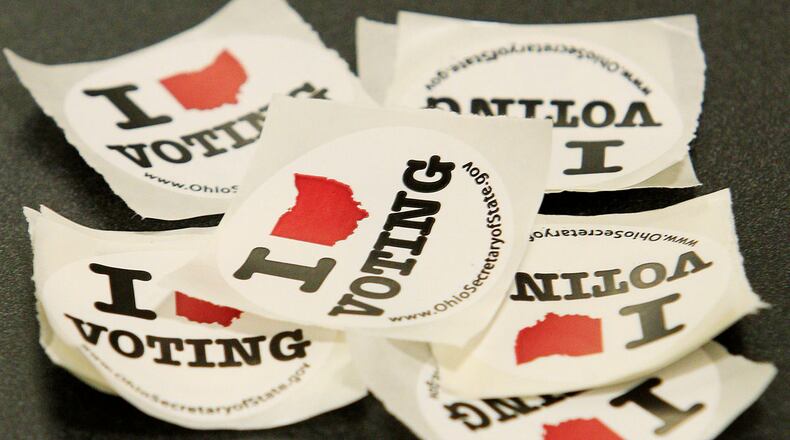Dayton Daily News’ VOTER GUIDE
Village officials said using the word “residents” instead of “citizens” in the ballot language was intentional to include people who reside in the village regardless of their U.S. citizenship. Estimates show the issue, if passed, would give voting rights to about 105 teenagers and about 40 non U.S. citizens who live in the village, according to Council President Brian Housh.
“The idea is that we’re kind of looking at it as inclusionary voting. If you have a stake in the community, if you work, pay taxes, and contribute, we think it’s appropriate that you can vote on council, mayor or any local initiatives,” Housh said.
Housh, who is an advisor for the local high school’s speech and debate team, said 16-year-olds care about having a say in government decision-making.
“Research shows when people vote earlier, they will develop that habit when they get older,” Housh said. “Voting numbers show 18- to 25-year-olds generally aren’t participating.”
There is a national campaign to lower the voting age to 16.
Vote16USA.org "serves as the central hub" for local campaign efforts and raising awareness of the initiative on a national level, according to the website.
Three U.S. cities have already passed measures effectly lowering the voting age: Berkeley, Cali., and two neighboring cities in Maryland. In Massachusetts, state lawmakers are being asked to approve home rule petitions for three municipalities where vote 16 issues have passed, and legislation has been proposed to make it easier for municipalities to pass and implement similar measures statewide, according to Vote16USA.org.
Beavercreek seeks grants for $4.5M North Fairfield work
It’s not clear how an election would be run in Yellow Springs if the issue passes, as separate ballots would need to be created for those with the newly granted voting rights.
“We are working with the secretary of state’s office to clarify how we will conduct local elections in Yellow Springs if the charter amendment passes,” said Llyn McCoy, director of the Greene County Board of Elections.
Running such an election will likely require more staff time and resources for the board of elections, according to John Caupp, elections board chairman and chair of the Greene County Republican Party.
“It has all kinds of challenges for the board of elections for sure,” Caupp said. “Who’s going to absorb the costs for it? Can we bill the village for those added costs?”
When asked how such an election would be run, a spokesperson for the Ohio Secretary of State’s Office cited Ohio’s election law, which begins by stating “Every citizen of the United States who is of the age of eighteen years or over” can participate in elections. The spokesperson declined to answer whether Yellow Springs’ ballot issue, if passed, is in-line with state law or whether the courts will be asked to determine its legality.
Christopher Conard, attorney for the village, was asked in August to provide a legal opinion regarding the authority of the village to place the charter amendments on the ballot.
STAY CONNECTED: Greene County News on Facebook
In Conard’s letter addressed to Greene County Assistant Prosecutor Elizabeth Ellis, who was advising the elections board, Conard cited Ohio’s laws on who can vote and noted the omission of the word “municipalities.”
“The omission of municipalities is significant as it is a conscious decision by the general assembly to not legislate in the area of voter eligibility for municipalities in recognition of their home-rule power permitting them to deviate from Ohio law on matters of local concern,” Conard’s letter states.
Polls are open from 6:30 a.m. to 7:30 p.m. Tuesday.
About the Author
